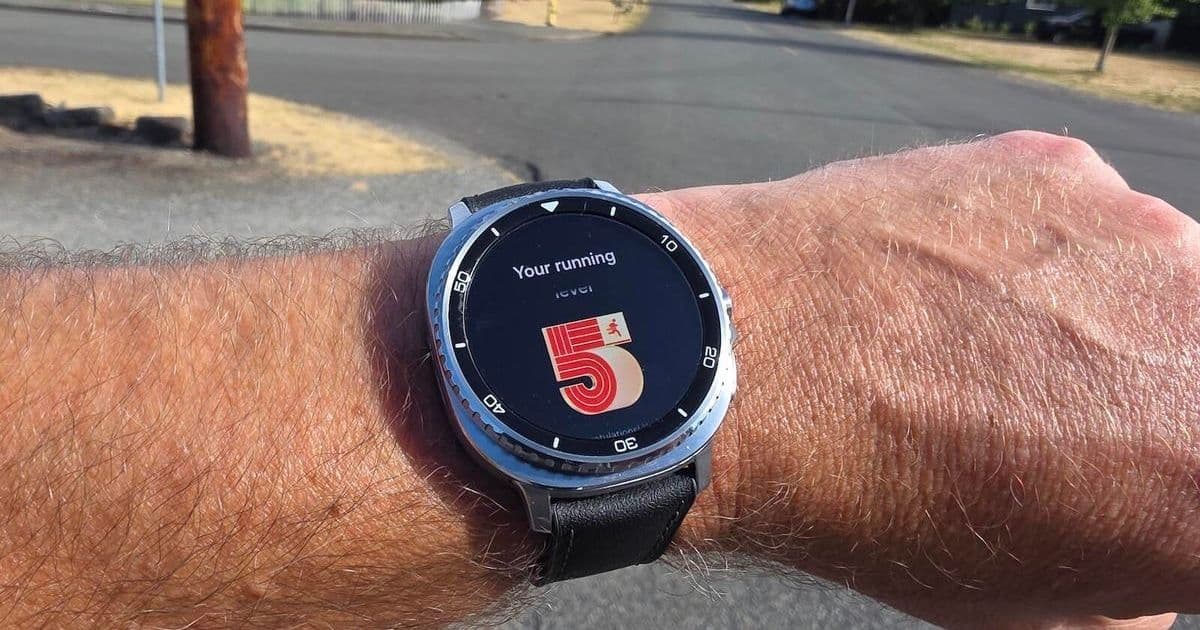Samsung's Galaxy Watch 8 Classic merges a nostalgic physical bezel with cutting-edge AI to deliver personalized health insights like never before. After rigorous testing, I found its free Running Coach not only assessed my fitness level but crafted adaptive workouts that fueled real progress. This wearable signals a shift where tech doesn't just track—it actively motivates and transforms user behavior.
As a tech journalist who tests dozens of wearables annually, I've seen fitness trackers evolve from basic step counters to sophisticated health monitors. But Samsung's Galaxy Watch 8 Classic, priced from $499.99, represents a quantum leap: it’s the first Wear OS device integrating both Google Gemini and Samsung’s Galaxy AI to act as a proactive health coach. During my week-long trial, its blend of retro-inspired hardware—like the buttery-smooth rotating bezel and elegant cushion design—with AI-driven analytics didn't just inform me; it pushed me to redefine my limits. Here's why this device is more than a smartwatch—it's a fitness revolution in a 44mm case.
The Hardware: A Nod to the Past, Built for the Future
The Galaxy Watch 8 Classic immediately stands out with its physical rotating bezel, a fan-favorite feature Samsung revives biennially. Spinning it feels precise and satisfying, making navigation through One UI effortless—a stark contrast to touch-only interfaces. The cushion-shaped casing lends a premium, analog aesthetic, though the display shrinks slightly to 1.34 inches compared to its predecessor, a trade-off for the compact form. But beneath this classic exterior lies modern prowess: sensors for ECG, sleep apnea detection, and body composition analysis, all feeding data into Samsung's health ecosystem. Unfortunately, Samsung's new dynamic lug system for bands proved frustratingly difficult to secure, highlighting how even innovative designs can stumble on usability.
AI Coaching: Where Data Becomes Motivation
What sets the Watch 8 Classic apart is its AI-driven coaching, accessible without subscription fees—unlike Google's paid Running Coach on the Pixel Watch. The centerpiece is the Running Coach, which begins with a baseline assessment: a 12-minute run interspersed with warm-up and cool-down periods. Post-test, the watch assigned me a 'Level 5' score (out of 10) and generated a tailored weekly plan. Workouts like fartleks, intervals, and pace runs adapt based on compliance scores, creating a gamified progression system. As Samsung's documentation notes:
"The AI analyzes your running efficiency, heart rate, and recovery to dynamically adjust future sessions, turning raw biometrics into actionable growth."
This isn't passive tracking; it's active mentorship. After three runs, I felt genuinely challenged yet supported, a testament to how AI can humanize technology.
Beyond running, the Sleep Coach categorizes patterns (I was dubbed a 'penguin sleeper') and prescribes a three-week improvement program. The watch also introduced an antioxidant index, measured via thumb contact with sensors. While my results suggested dietary tweaks like 'eat more vegetables,' Samsung hints at future hyper-personalized advice, such as 'consume 10 blueberries,' as the AI learns user habits. These features exemplify a broader trend: wearables transitioning from reactive tools to proactive health partners.
Implications for Developers and the Wearables Market
The Watch 8 Classic's success hinges on its open approach—health insights like vascular load and energy scores are freely available, contrasting with competitors' paywalled features. For developers, this signals fertile ground: Samsung's API integrations could spur third-party apps that leverage its rich biometric data, from stress management to nutrition planning. Yet, challenges loom. The smaller display and finicky band mechanism remind us that hardware ergonomics must keep pace with software innovation. As AI permeates wearables, expect intensified battles over data privacy and subscription models—Samsung’s no-fee coaching sets a compelling precedent.
The Verdict: More Than a Watch, a Catalyst for Change
Testing the Galaxy Watch 8 Classic was humbling; it exposed gaps in my fitness I'd ignored. But it was also empowering—the AI didn't just critique, it equipped me to improve. For runners and health-focused users, this device is invaluable, blending comprehensive metrics with motivational tools that rival dedicated coaching services. As wearables evolve, Samsung proves that the future isn't just about smarter devices, but about technology that understands—and elevates—human potential.
Source: Based on testing and reporting by Matthew Miller for ZDNET. Original article: I ran with Samsung's Galaxy Watch 8 Classic, and it both humbled and motivated me

Comments
Please log in or register to join the discussion